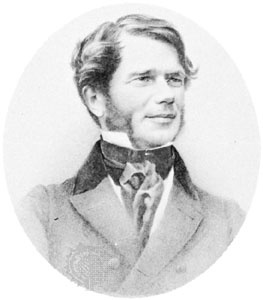O'Brien, William Smith
Irish patriot
born Oct. 17, 1803, Dromoland, County Clare, Ire.
died June 18, 1864, Bangor, Caernarvonshire, Wales
 Irish patriot who was a leader of the literary-political Young Ireland movement along with Thomas Osborne Davis, Charles Gavan Duffy, and John Dillon.
Irish patriot who was a leader of the literary-political Young Ireland movement along with Thomas Osborne Davis, Charles Gavan Duffy, and John Dillon.O'Brien sat in the British House of Commons from 1828 to 1848. Although he was a Protestant, he actively favoured Roman Catholic emancipation, but he also wished to maintain the Anglo-Irish legislative union (in force from Aug. 1, 1800). In 1828, therefore, he opposed the parliamentary candidacy in County Clare of Daniel O'Connell (O'Connell, Daniel), who was the leading advocate of Catholic political rights and Irish self-government. He continued to support the union until 1843, when he was angered by the British imprisonment of O'Connell. In October of that year O'Brien joined the anti-union Repeal Association, serving as deputy leader while O'Connell was in jail.
On July 27, 1846, after O'Connell had advised against the use of force, O'Brien led the Young Irelanders in withdrawing from the association. In January 1847 they formed the Irish Confederation to press for more effective famine relief. In May 1848, after traveling to Paris to congratulate the leaders of the new French republic, O'Brien was tried for sedition, but the proceedings ended in a hung jury. He then joined his political colleague Thomas Francis Meagher in advocating a violent revolution. On July 29, 1848, he led a futile rising of peasants against police at Ballingarry, County Tipperary. Arrested and convicted of high treason, he received a death sentence, which was commuted to life exile to Tasmania. Following his release in February 1854, he lived in Brussels until he was granted a full pardon in May 1856.
- Orléans, Louis I, duc d'
- Orléans, Louis-Philippe, duc d'
- Orléans, Louis-Philippe-Joseph, duc d'
- Orléans, Louis-Philippe-Robert, duc d'
- Orléans, Philippe I de France, duc d'
- Orléans, Philippe I, duc d'
- Orléans, Philippe II, duc d'
- Orléans, Siege of
- Orm
- Ormandy, Eugene
- Ormea, Carlo Vincenzo Ferrero di Roasio, marchese d'
- Ormoc
- ormolu
- Ormond Beach
- Ormonde, James Butler, 12th earl and 1st duke of
- Ormonde, James Butler, 2nd duke of
- Ormonde, Piers Butler, 8th earl of, Earl Of Ossory
- Ormonde, Thomas Butler, 10th earl of
- Ormsby-Gore, William George Arthur, 4th Baron Harlech
- ornament
- ornamentation
- Orne River
- Ornette Coleman
- ornithischian
- Ornithogalum